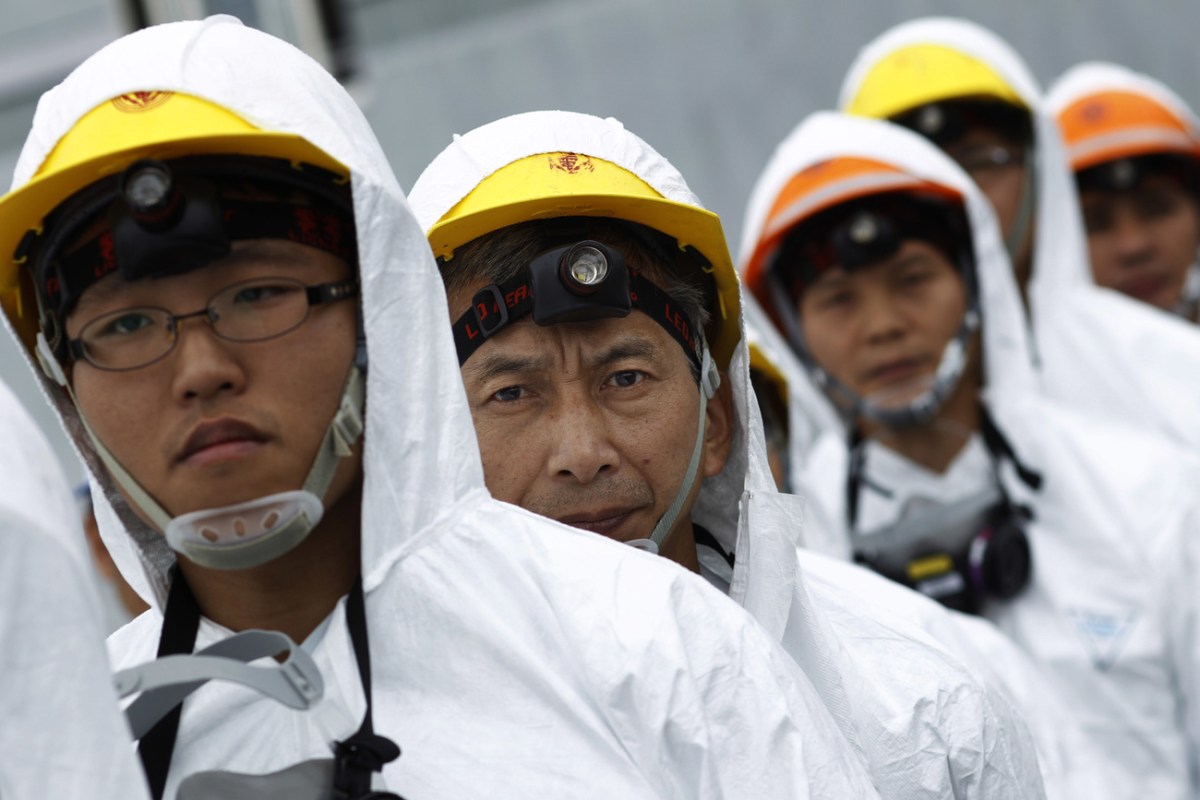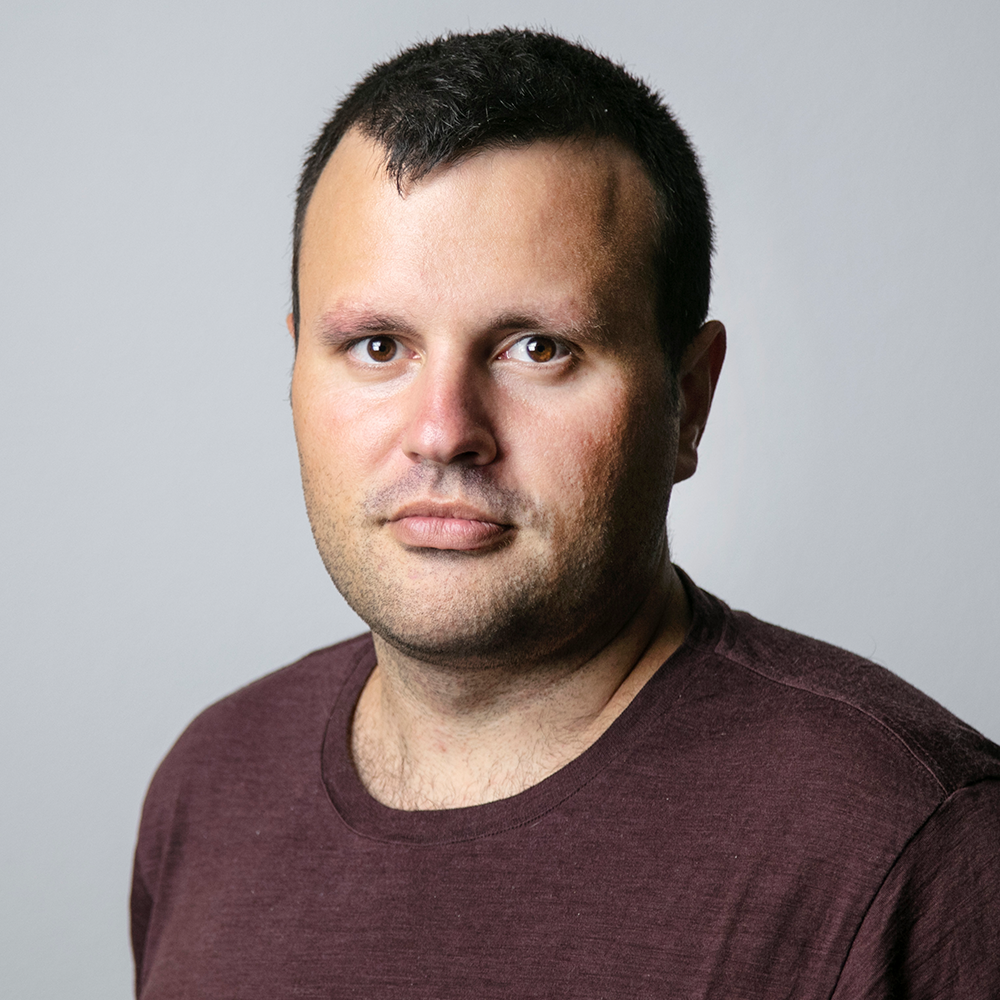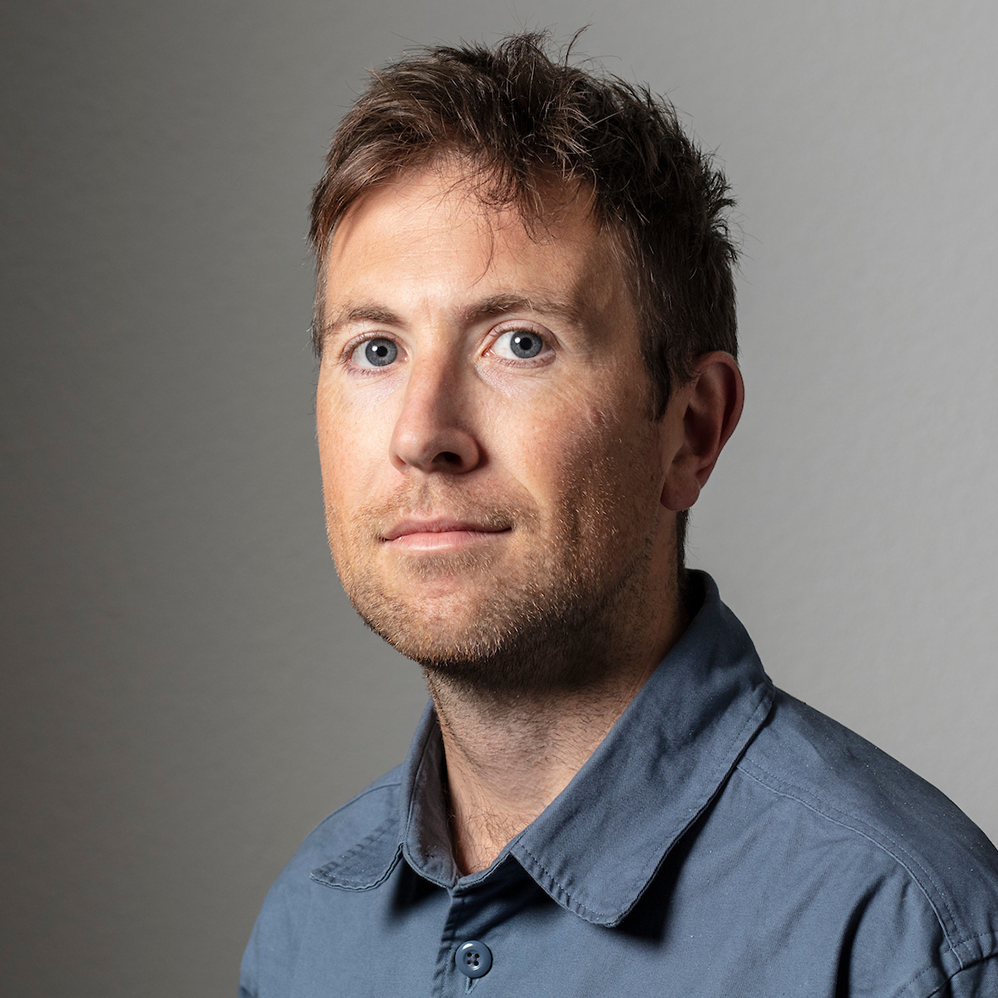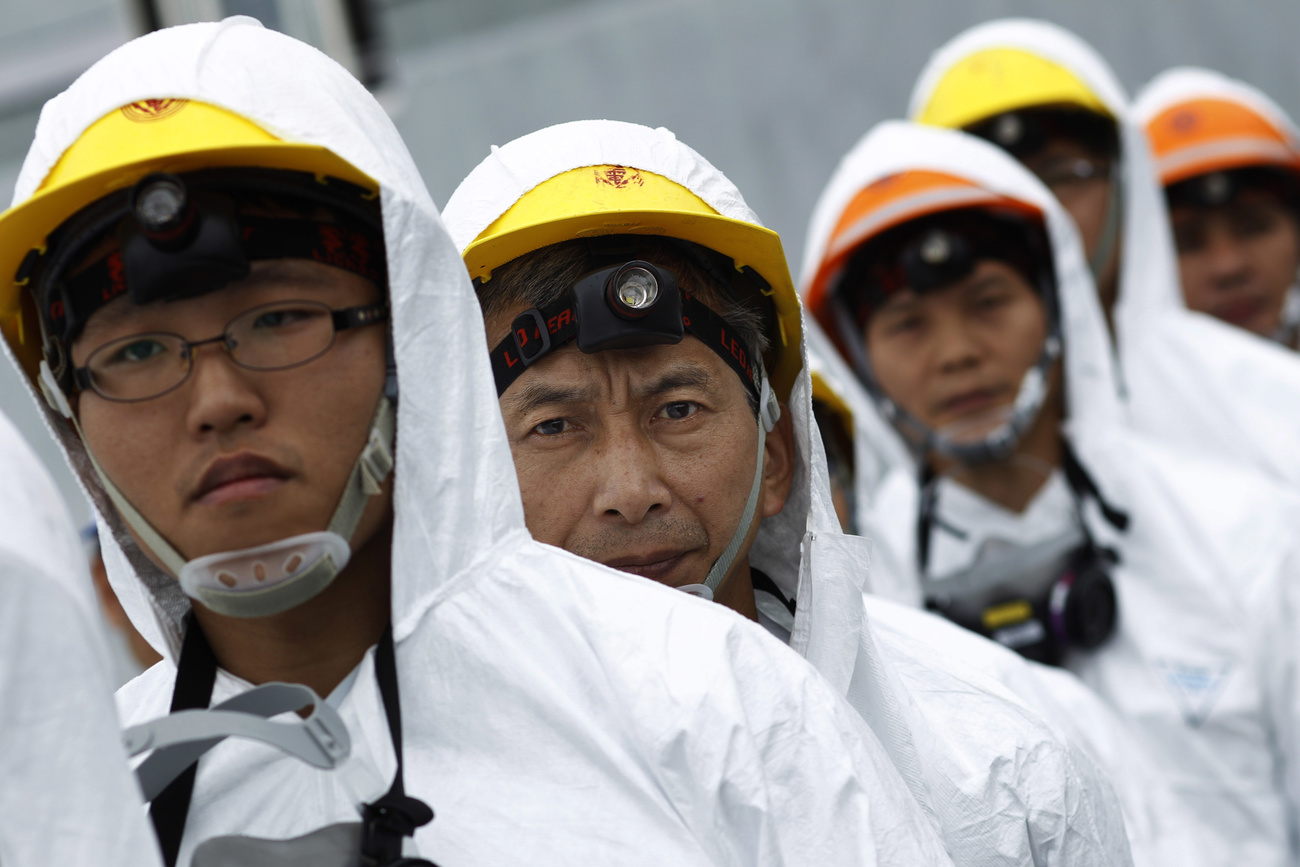
Employees of a nuclear plant near Taipei during an emergency drill in 2011.
AP Photo / Wally Santana
At the end of August, Taiwanese citizens will vote on restarting a recently shut down nuclear power plant. Votes on nuclear energy are always about long-term decisions and long-term risk assessment – in Taiwan, they’re also about the threat from China.
In May, Taiwan shut down its last nuclear power plant reactor, thus achieving the goal announced in 2016 by the governing centre-left Democratic Progressive Party (DPP) – a “nuclear-free homeland” by 2025.
On August 23, however, the Taiwanese will vote in a referendum on restarting the Maanshan-2 nuclear plant. How did it come to this?
“Throughout Taiwan’s history, nuclear energy has always been an important issue – as well as the focus of referendums,” says Simona Grano, head of the University of Zurich’s China-Taiwan Relations research unit. The issue also has a history of being linked to political agendas.
A referendum as a ‘direct-democracy counteroffensive’
In this case, the referendum is tied to a recent mass recall vote – an instrument that allows voters in Taiwan to remove elected officials from office. After such a campaign threatened the parliamentary majority of the Kuomintang (KMT) opposition party and its ally – they were accused of being too closely linked to China – the KMT used the nuclear referendum as a kind of direct-democracy counteroffensive.
As such, the KMT proposed four referendum topics, including one on the death penalty. However, the referendum on restarting the Maanshan-2 nuclear plant was the only one authorised by the electoral commission.
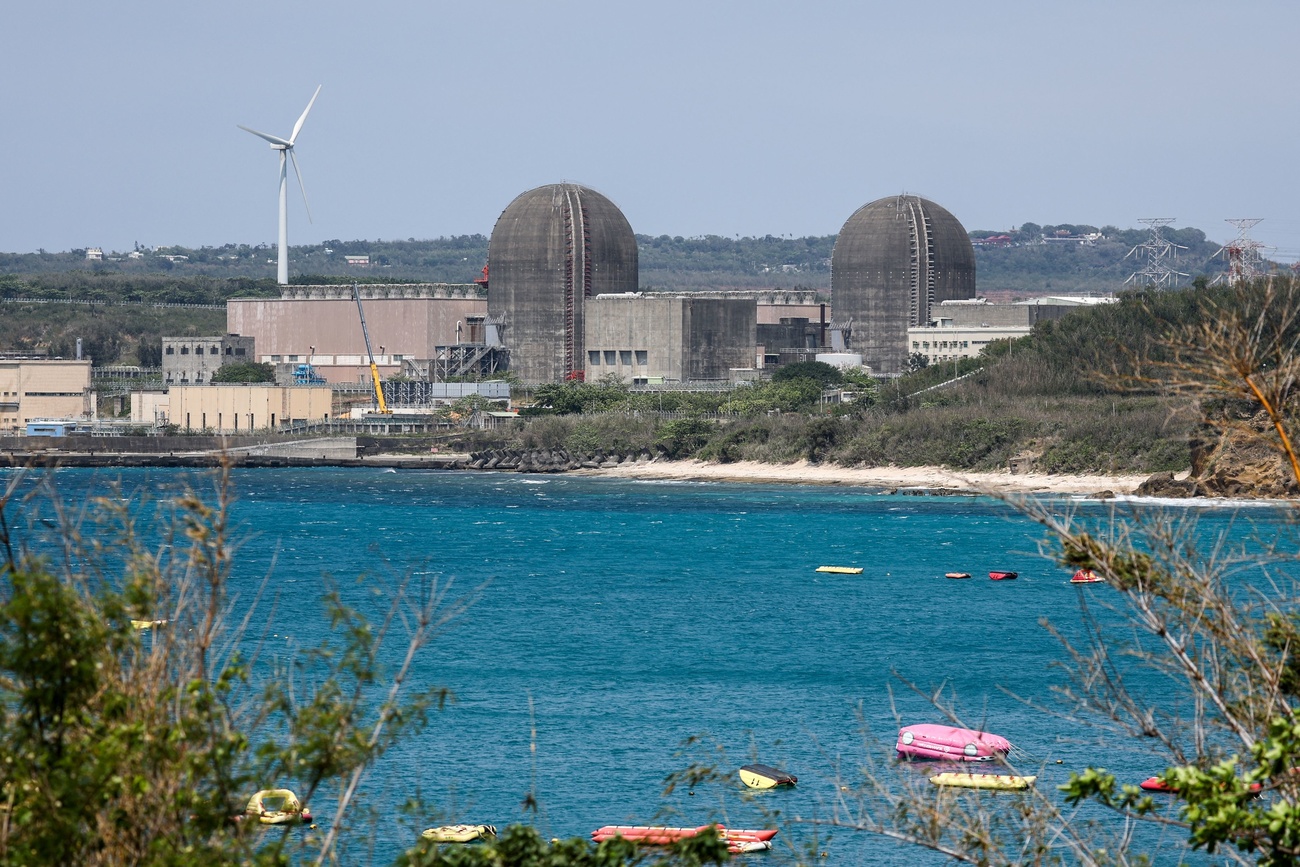
Will the second reactor at the Maanshan power plant be restarted? Reactor 1 was already turned off in 2024.
Afp Or Licensors
Meanwhile, the recall vote at the end of July ended up in favour of the KMT, as its members managed to avoid being voted out en masse. With the nuclear referendum to come, it’s now the government which is on the defensiveExternal link.
Nuclear energy as a promise of progress – and a symbol of dictatorship
Historically, the nuclear issue is closely intertwined with Taiwan’s democratisation. The Chinese nationalist KMT, which ruled the country before it became a democracy, promoted nuclear energy as a progressive way to make the country an economic power.
During this time, with Taiwan still a dictatorship under the KMT, critics were unable to confront the ruling party directly. Instead, as Grano explains, environmental and nuclear energy issues offered opportunities to at least challenge the KMT’s political initiatives.
This continued during democratisation in the 1990s. In her book, Environmental Governance in TaiwanExternal link, Grano writes that “many of the previously suppressed social movements and opponents chose the anti-nuclear cause as their cause célèbre to attack the state”.
After the 2011 disaster in Fukushima, Japan, Taiwanese public opinion meanwhile turned sharply against nuclear power.
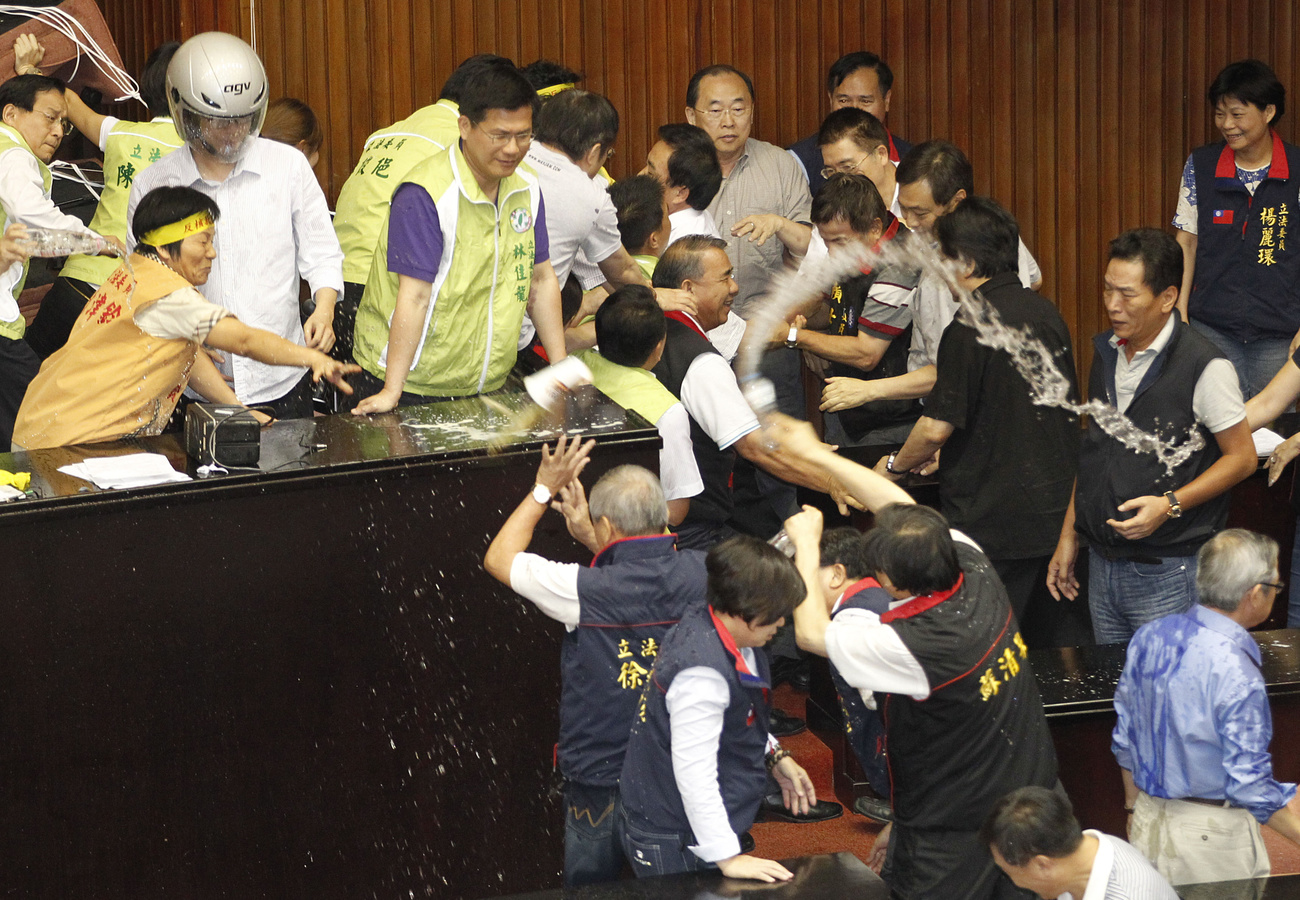
In August 2013, Taiwanese parliamentarians got hot and bothered during a debate about a possible referendum on the construction of a nuclear plant.
AP Photo / Wally Santana
Then in 2013, the construction of a fourth nuclear power plant was marred by corruption scandals – prompting 200,000 people to take to the streets demanding a halt to the project.
What would Taiwan do in the event of a Chinese blockade?
At that time, the DPP was the largest opposition party. Since taking power in 2016, it has followed a plan of phasing out nuclear power by 2025. Even a 2018 referendum in which a majority voted to remove the phase-out clause from lawExternal link did not alter the timeline.
But according to Grano, the DPP has since softened its anti-nuclear stance. “Geopolitical shifts are pushing the Taiwanese government to act more pragmatically and less ideologically,” she says.
Taiwan relies heavily on fossil fuels. Coal and gas generated 80% of electricityExternal link in 2022, making the country precariously dependent on them. “Natural gas is imported; everything is imported. If China starts a blockade, Taiwan will have big issues in supplying itself,” Grano says.
In recent years, tensions have grown with China, which does not recognise Taiwan’s de facto independence. With its One China policy, Beijing also blocks other states from recognising Taiwan. Meanwhile, Taiwan imports most of its coal from Australia and Indonesia, as well as partially from RussiaExternal link. Taken together, this creates a strategic vulnerability. An opinion piece in the online publication The DiplomatExternal link even called the nuclear phase-out a “self-created Achilles heel,” arguing that nuclear is the only energy source unlikely to be attacked by China in the case of an invasion.
There is also an economic dimension. Taiwan is one of the world’s leading producers of semiconductors, and chip manufacture needs large amounts of electricity. Recently, there have been increasingly frequent power outages.
For such reasons, Grano believes a majority of Taiwanese may well vote to extend operation of the Maanshan-2 nuclear reactor, which has been running since 1985.
Referendums in Taiwan are more agenda-setting than substantive, says former ambassador
The political scientist David Huang was Taiwan’s diplomatic representative in Switzerland until the end of July 2025. Speaking to Swissinfo, Huang compared the 40-year-old Maanshan-2 reactor in Taiwan with Switzerland’s Beznau plant, which has been in operation since 1969 – when men first landed on the moon (and even in stable central Europe, the safety of Beznau is disputed, and its location close to the border has sparked protests in GermanyExternal link). Huang emphasises that the risk of storms and earthquakes is much higher in Taiwan than it is in Switzerland.

An April 2014 protest against nuclear energy in Taipei.
EPA / David Chang
Huang adds that referendums in Taiwan are not directly focused on changing policy. “Using referendums to set the political agenda is much more important than the proposal itself,” he says.
Huang also points out that in the past, referendums were always held at the same time as elections, which allowed politicians to use them as tools to drum up support. “This is different from how referendums are used in Switzerland, where it is always about the issue itself,” Huang says. And even though this changed in Taiwan in 2019, when a new law stopped elections and referendums from being held simultaneously, the tradition has left a lasting impact.
In fact, referendums in Switzerland also have an agenda-setting dimension. For example, most people’s initiatives fail at the ballot box, but they can succeed in bringing an issue onto the political stage – and put pressure on lawmakers to respond. Referendums, which can be used to overturn parliamentary decisions, give parties not only a say on the issue itself, but also a platform to campaign for their interests.
But while these processes are historically well-oiled in Switzerland, Taiwan, on the other hand, is a very young democracy – and its instruments of direct democracy have not yet fully taken root.
Energy policy and direct democracy in Switzerland
Shortly after it was announced, the referendum on restarting the Maanshan-2 reactor in Taiwan also caught the attentionExternal link of the pro-nuclear lobby in Switzerland. After Fukushima, the Swiss government pledged to phase out nuclear power plants, and a ban on new construction has been in place since 2017. More recently, however, the government has been pushing to lift the ban in order to head off possible bottlenecks during the shift to renewables.
In July, a reportExternal link by the Swiss Academy of Natural Sciences (SCNAT) made it clear that restarting Switzerland’s nuclear power programme would not happen quickly. Due to the lengthy political steps involved, it wouldn’t even be possible for a new plant to go into operation before 2050, the report concluded.
Isabelle Stadelmann-Steffen, a political scientist at the University of Bern, co-authored the SCNAT report. She says that in the transition to renewable energies, direct democracy in Switzerland is overall “more of an obstacle than a catalyst.” The same blocking effect would likely apply for the construction of any new nuclear power plant, she reckons. And even if Swiss voters approve the so-called Blackout Initiative, which aims to lift the ban on new nuclear plants, it would only be the first of “several key decisions” that the population would have to make before a new plant could actually be built, Stadelmann-Steffen says.
Meanwhile, the government’s choice to submit a counter-proposal to the Blackout Initiative shows just how much the political debate has shifted, Stadelmann-Steffen adds. Interestingly however, public opinion has so far not shifted so significantly: “roughly half of Swiss voters are still in favour of nuclear energy and half are against it,” she says.
According to Stadelmann-Steffen, the views of the Swiss on nuclear energy also hinge on questions of trust. “Do we accept the low risk of a nuclear accident and possible environmental consequences, or is the risk too big? Can society cope with the question of managing nuclear waste?”
In Taiwan, these questions of trust are interwoven with geopolitical uncertainty. Will the island nation always be able to rely on energy imports? After the failed recall elections, a direct-democracy counteroffensive could now hand Taiwan’s opposition parliamentarians’ a victory.
More
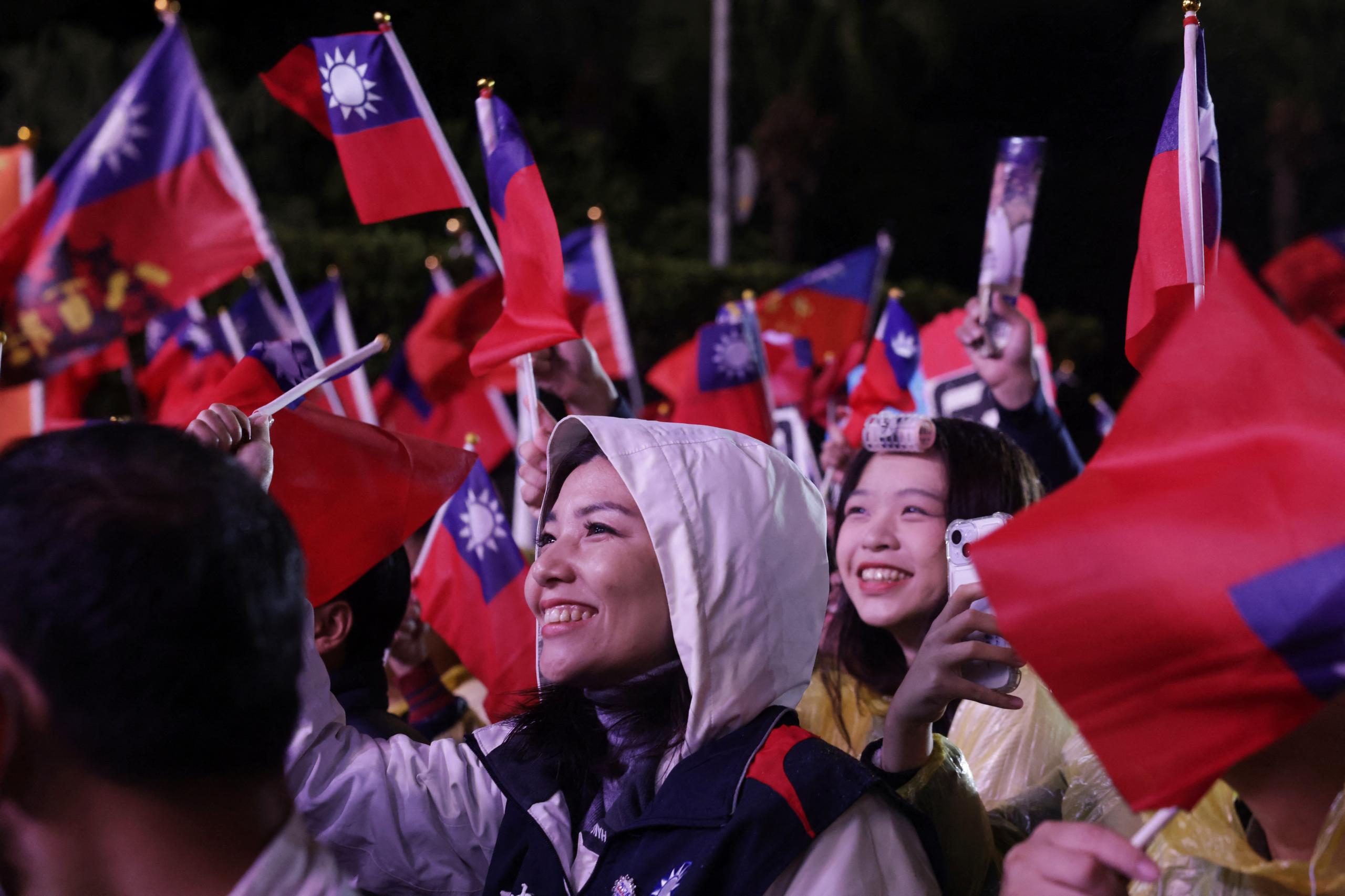
More
Explainer: Why Taiwan’s vote commands global attention
This content was published on
Jan 9, 2024
When Taiwan votes, the world watches closely because of China’s hostile attitude towards the island.
Read more: Explainer: Why Taiwan’s vote commands global attention
Edited by Balz Rigendinger; adapted from German by David Kelso Kaufher/dos
Articles in this story
